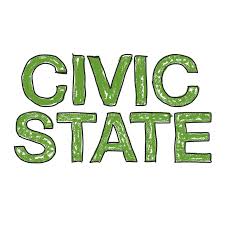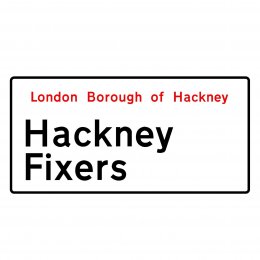Dear community organisations,
We're glad you're here! Starting a Library of Things is a fun and exciting way to create a special resource with your community. It helps people save money, reduce waste, learn skills and come together. We’ve done it for 10 years – and the stories are inspiring. Plus there are great peer networks of sharing libraries across the UK and beyond who can help.
A head's up before you start: Sharing libraries seem like a simple idea, but can be hard to sustain as standalone projects. They require rent-free space, funding, technology, volunteers, quality items, leadership, enthusiasm, perseverance, negotiation, trust-building, humour, a strong team... Chris from Edinburgh Tool Library says it well here!
Read on for info on how different communities approach sharing libraries – and to learn how we can help you with the platform we've built as infrastructure for the movement.

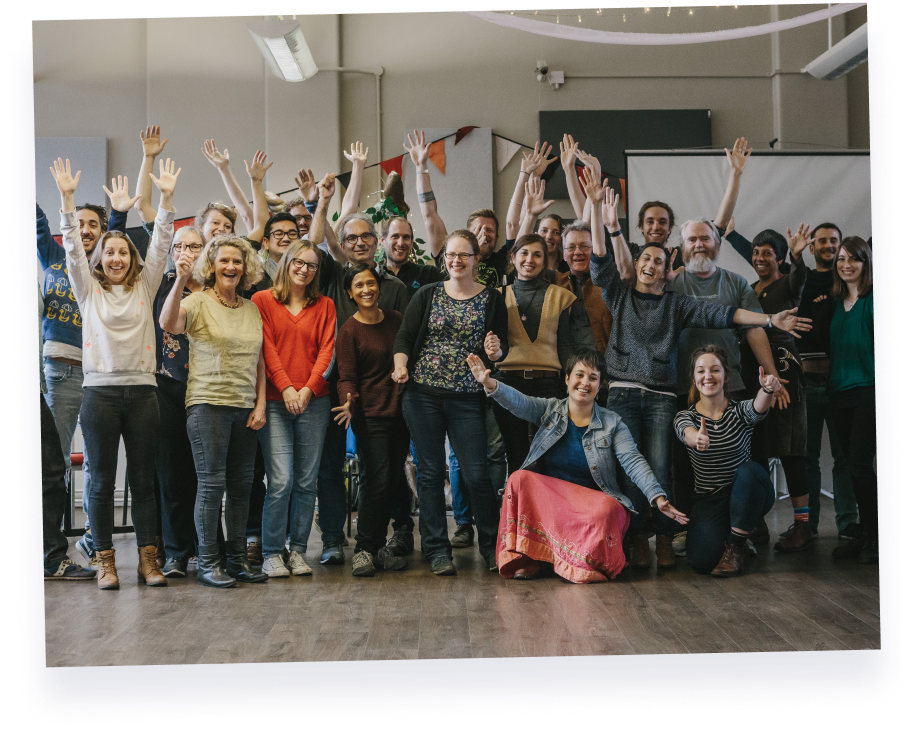
📸 A gathering we hosted for sharing library leaders from across the UK
Choosing the right model
Different models work for different neighbourhoods.
Here are some models we know and love from around the UK:
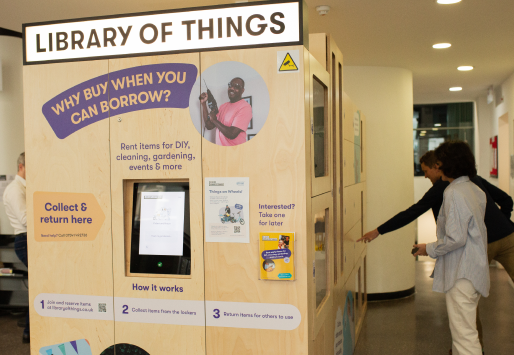
The self-service locker
Example: London Library of Things
In a nutshell: Self-serve lockers in a library, reuse hub, shopping centre. Option to have volunteer hosts at busy times.
How it works: Watch London video here
Benefits:
• Helps local people save money, waste & emissions
• Convenient & accessible to many through longer opening hours = larger reach
• Brings footfall to libraries
• Only needs ~6sqm space
• Good for cities & larger towns.
Challenges: Needs funding upfront to get started. Members with lower digital confidence can need extra support (eg. by host venue staff or telephone support).
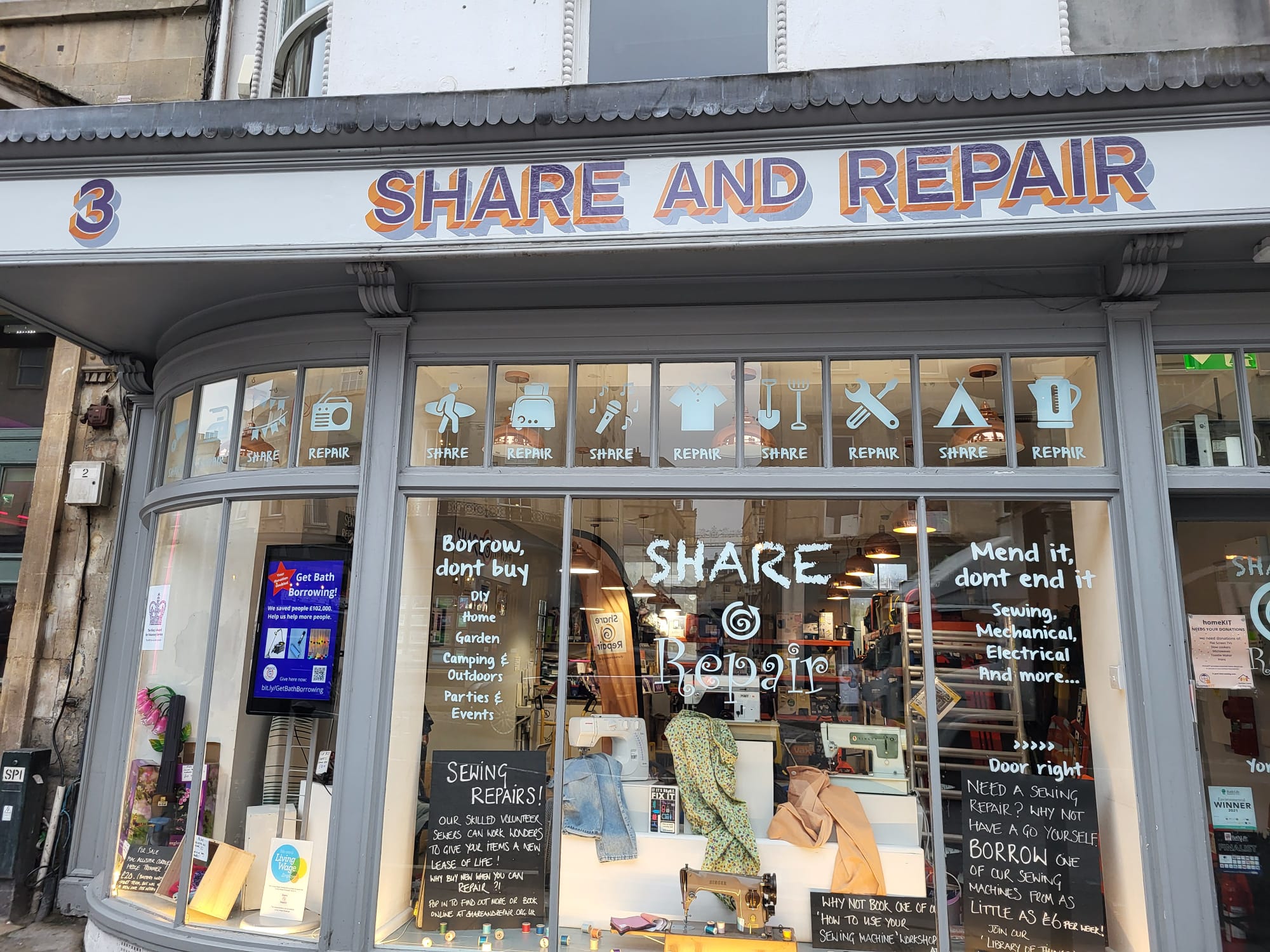
Combined share & repair/DIY hub
Examples: Share & Repair Bath, Re:Make Newport, Edinburgh Tool Library
In a nutshell: A large space housing a sharing library alongside a repair shop and/or makerspace.
How it works: Watch Bath video here, read about Edinburgh here
Benefits:
• Helps local people save money, waste & emissions
• Lots of opportunities for skills-sharing, volunteering & wider local impact
• Multiple uses = diversified income & resilience
Challenges: Needs affordable space & funding upfront to get started. Tends to need ongoing funding or sponsorship to support in-depth skills programmes.
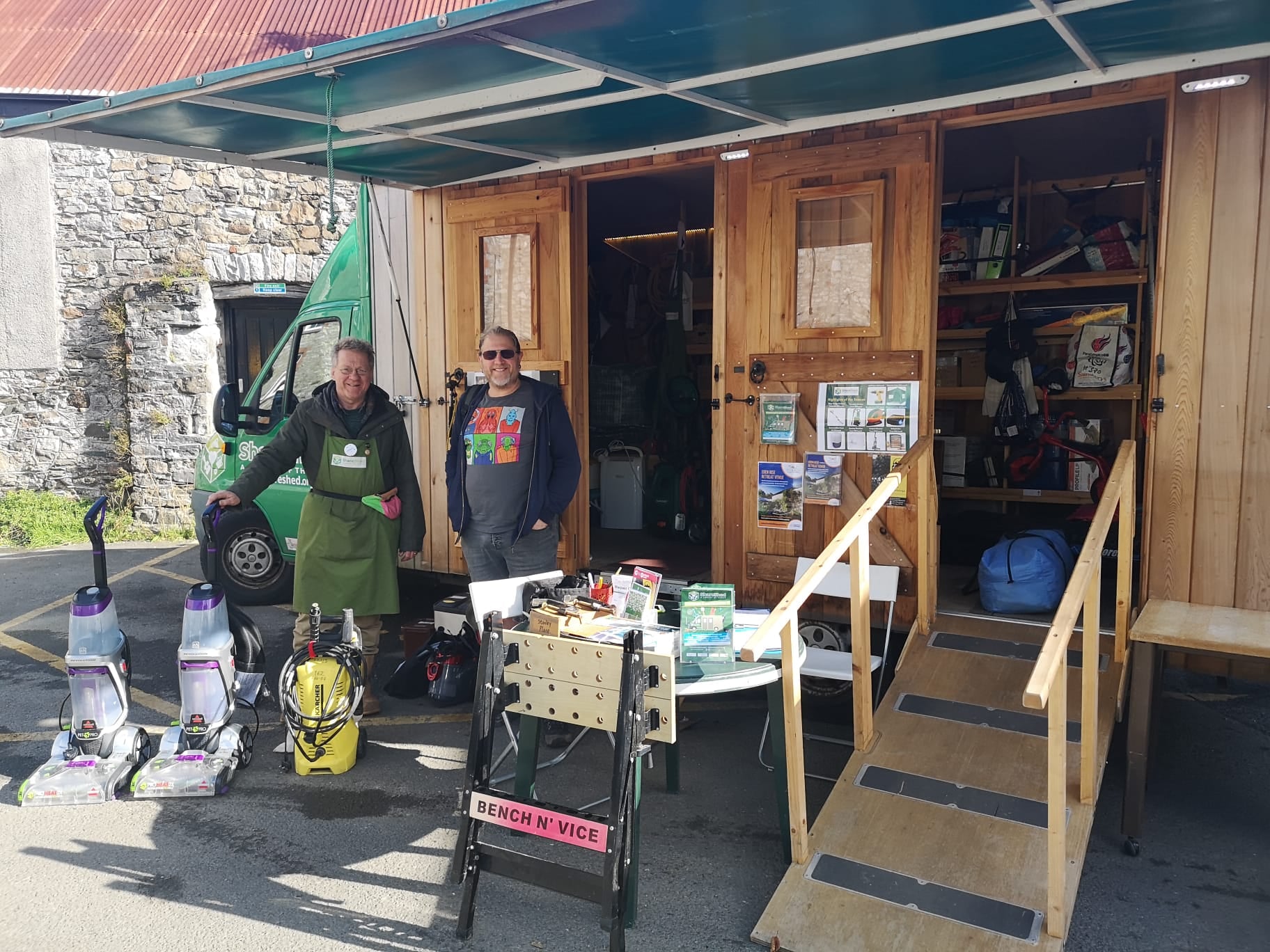
Share shop or shed
Examples: Share Shed (Devon), Share Bristol, Letchworth Garden Shed, Kernow LoT
In a nutshell: A shop or shed (can be mobile) with donated items, often all-volunteer-run or hybrid grant-funded, typically open 2-3 times per week.
How it works: Read about Share Bristol here
Benefits:
• Helps local people save money, waste & emissions
• Relatively easy and cheap to get started
• Opportunities for skills-sharing & volunteering
• Good for towns, rural areas and places with active volunteer networks.
Challenges: Opening hours often limited to 2-3 slots per week due to need for grant funding and finding volunteers. Can be hard to sustain if volunteer shortage or burnout.
We acknowledge that in some close-knit neighbourhoods and smaller villages where people own many of their own tools, a Whatsapp group for neighbours is all that's needed!
Partnering with us
We partner with councils and communities to help you start and sustain your own sharing library.
Whichever model you choose, you can use our platform to access:
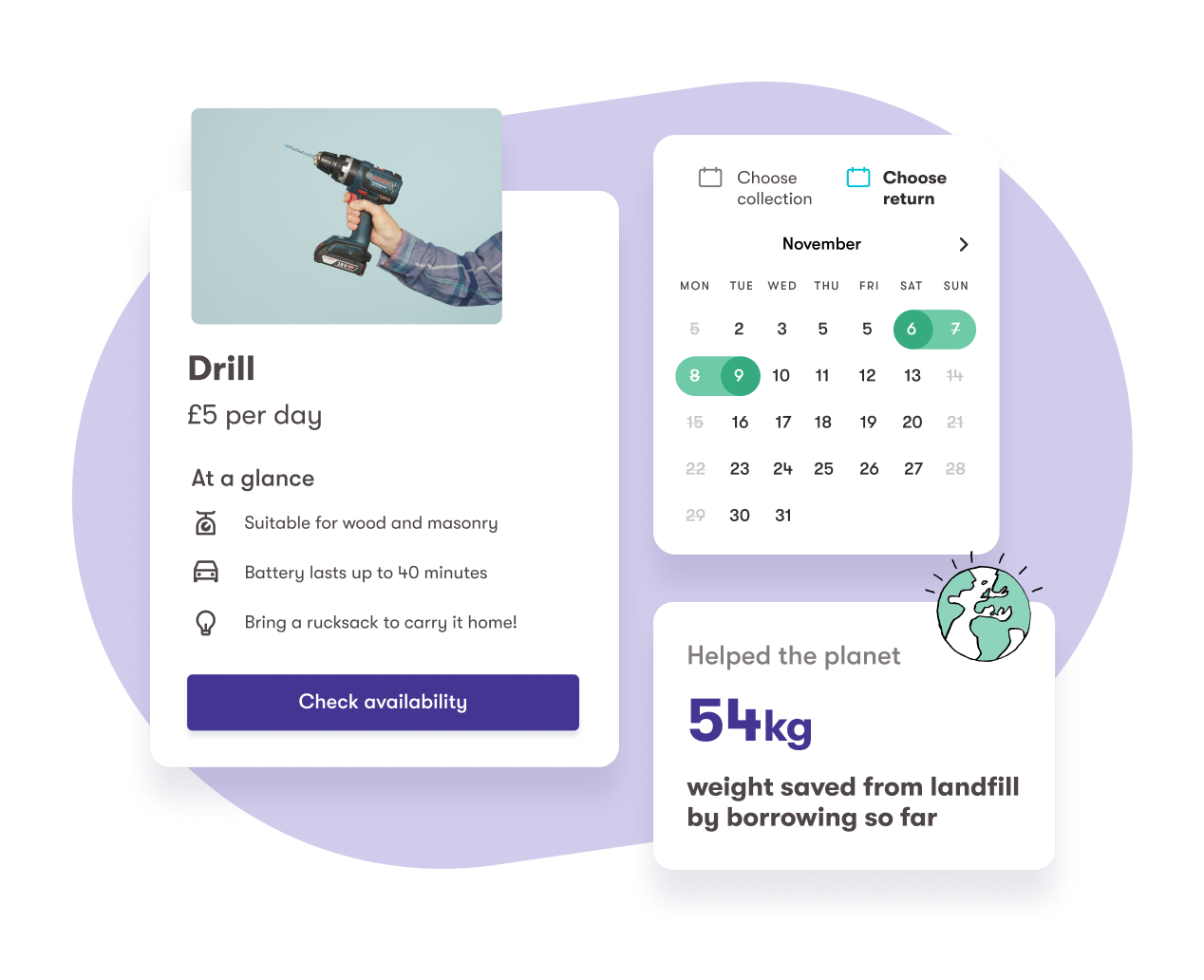
User-friendly software that integrates flexibly with staffed spaces, lockers or home delivery.
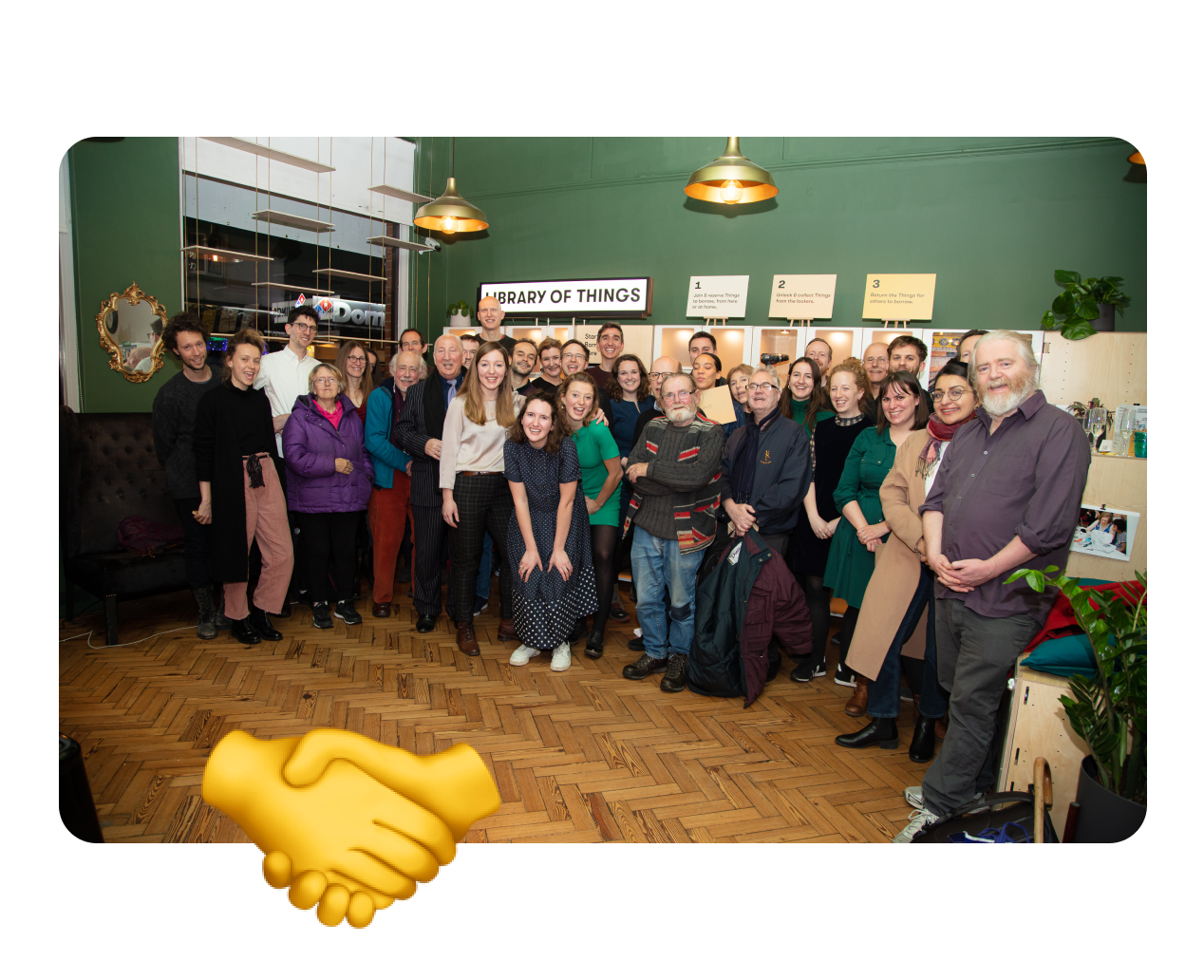
Help to partner with communities, funders, landlords...
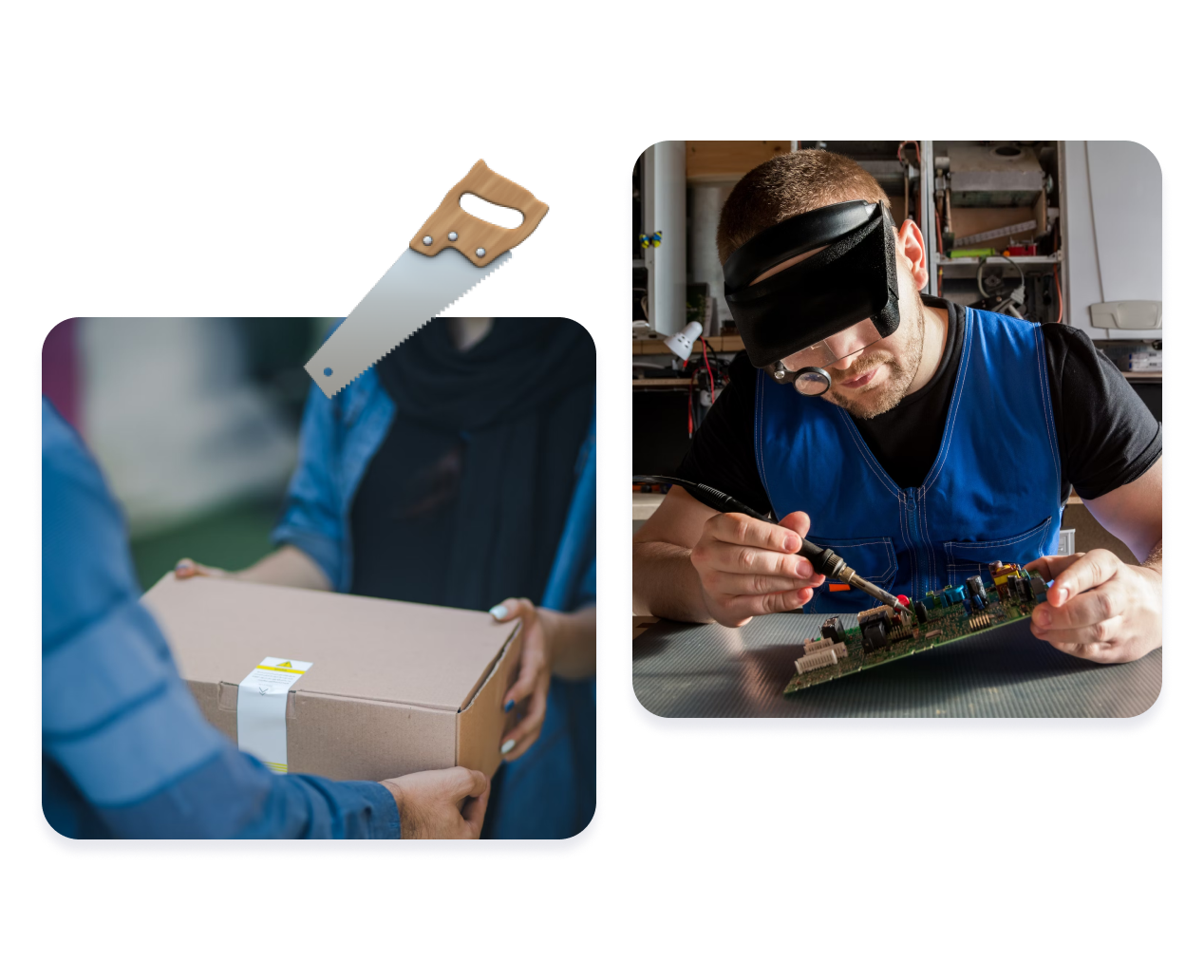
A ready-made supply chain of quality Things, how-to guides & maintenance knowhow
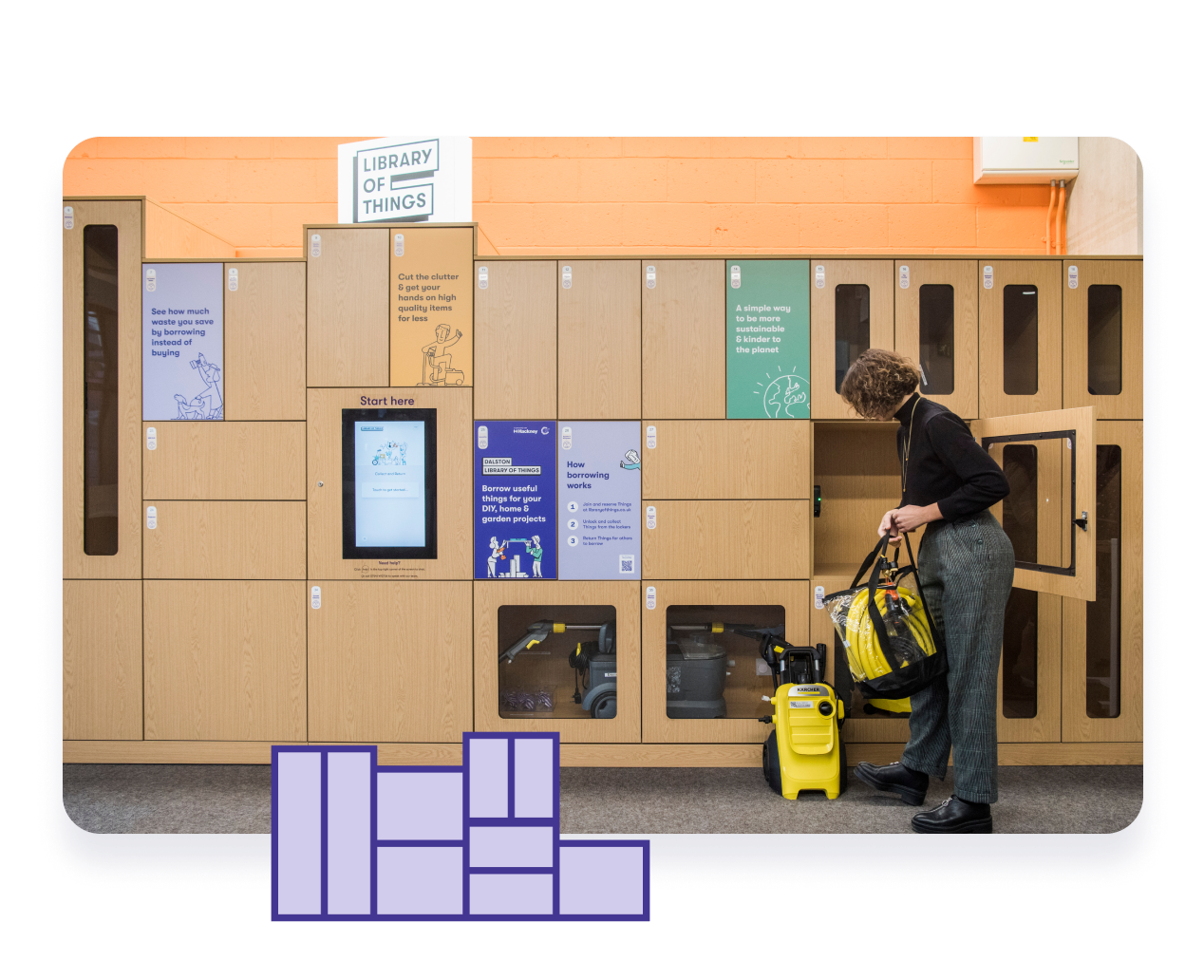
Self-serve locker co-design, sourcing & install if needed
Software includes:
📣 Tools for local movement-building 📊 Impact measurement & reporting dashboards
📓 Operational systems – like how-to guides, maintenance wikis 💬 Thing sourcing systems, SMS reminders…

“Library of Things have been great partners! The platform is simple for our borrowers to use.”
Becky Harford, Co-Director, Benthyg Cymru
Pricing
You can just use our software to power your sharing library. Or you can order ready-made lockers integrated with our software (either branded & operated by you or by us).
📦 You operate
Lockers branded, stocked & serviced by you
💜 We operate
Lockers branded, stocked & serviced by us

Software only
📦 £25 per month, billed annually

10 lockers
+ software
📦 £6k upfront
from £25 p/m
💜 £8-10k upfront
£350 p/m

20 lockers
+ software
📦 £9.5k upfront
from £25 p/m
💜 £13-15k upfront
£650 p/m

30 lockers
+ software
📦 £13k upfront
from £25 p/m
💜 £19-21k upfront
£900 p/m

Custom
+ software
Talk to us
to discuss your requirements with our team & place an order
Please note:
• Prices are indicative only and are subject to change based on individual requirements like the types of Things and costs of materials.
• Prices are different if the sharing library is started & operated by a local authority – there's a page just for councils here.
Please note:
These prices might feel high – they're mostly made up of the costs of materials, smart locks and labour to fabricate and install the lockers. A small amount of budget is included for our team's time to help co-design the lockers and the mix of items, to ensure the host space is fit-for-purpose, and to share basic guidance and templates for starting a sharing library.
Any surplus income is reinvested in our mission and platform.
I want ready-made lockers! What next?
1. Find a home for them
Locker-based Libraries of Things work well inside high footfall, publicly accessible spaces like libraries, shopping centres, coworking spaces, reuse hubs and other community venues. Look for:
• Opening hours spanning 6+ days per week
• Rent-free space
• Enough space to house the lockers without blocking fire exits or walkways
• Space for a technician to do maintenance once per week
Read our full recommended criteria here.
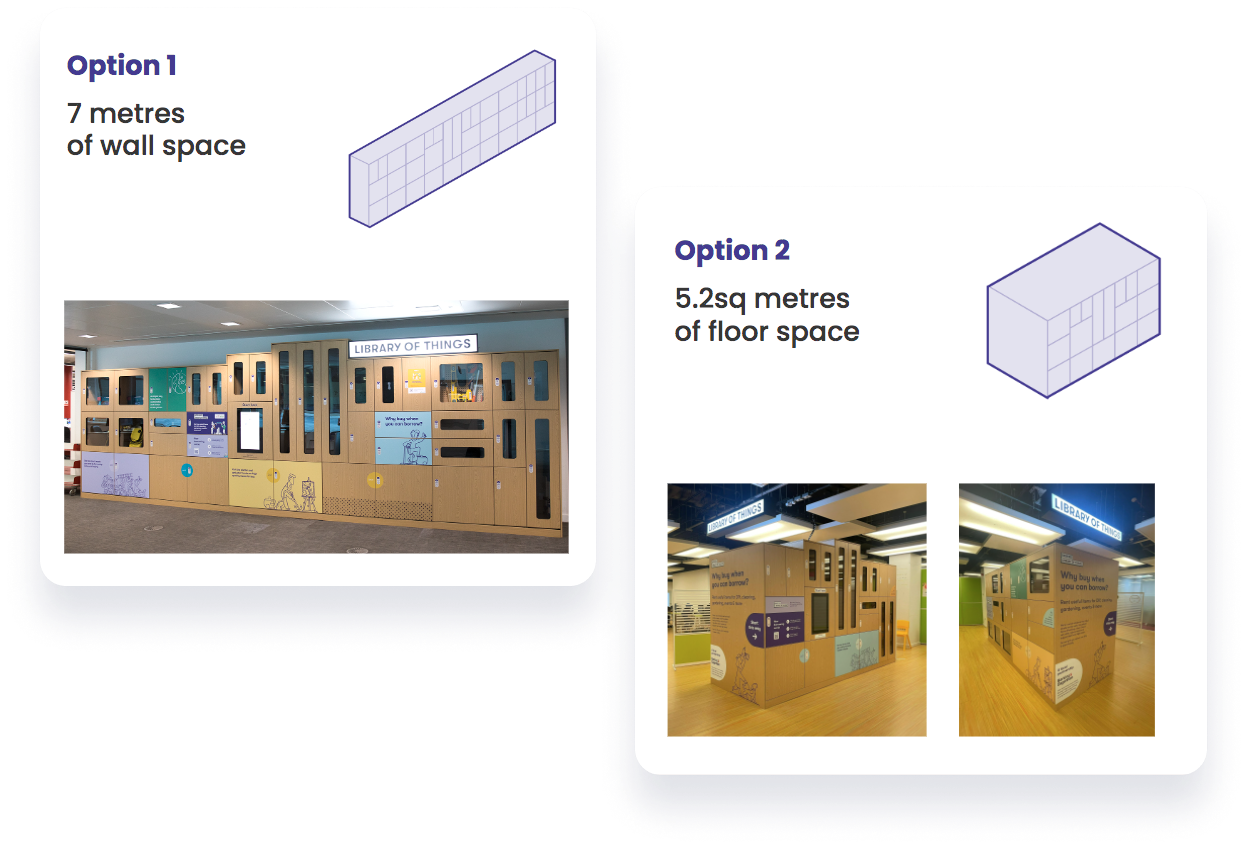
2. Test & grow local demand
A Library of Things is successful if it’s regularly used and supported by local people.
To test local demand before you invest in a Library of Things:
📣 Start a campaign using our campaign tool here and gather 250+ expressions of interest from local people
🎤 Hold a community assembly or series of workshops to build relationships and support
📈 Once up and running, you will need to promote the service regularly to ensure ongoing usage
3. Raise funds
Here are some tried and tested fundraising options:
Grants – like National Lottery Community Fund’s Awards for All (up to £20,000)
Local crowdfunding campaign – Crowdfunder offers a range of match-funding options
Councils – some councils have available budget in their climate, sustainability and waste teams, libraries capital budgets, CIL funds, or local grant-funding programmes. We recommend having a conversation with a councillor or senior officer working in climate and/or sustainability – and even taking them on a visit to an existing sharing library – to get them excited by your plans.
to discuss your requirements with our team & find out more
Impact you could have each year
Every day, our platform powers dozens of item rental locations – saving money for thousands of people, and preventing hundreds of tonnes of waste and emissions through purchase prevention and wider behaviour change.
Here’s the impact you could have in one neighbourhood every year (data is based on one of our locations, Hammersmith Library of Things):
👋 2000+ people
borrowing not buying
🔌 15 tonnes
electrical products reused
💰 £280,000
saved by members
👛 84%
people say they save money through Library of Things
😊 67%
feel more proud of & better connected to their neighbourhood.
PLUS new jobs, training & volunteer opportunities, more footfall to high streets and community hubs, greater pride of place, & a stronger local circular economy



